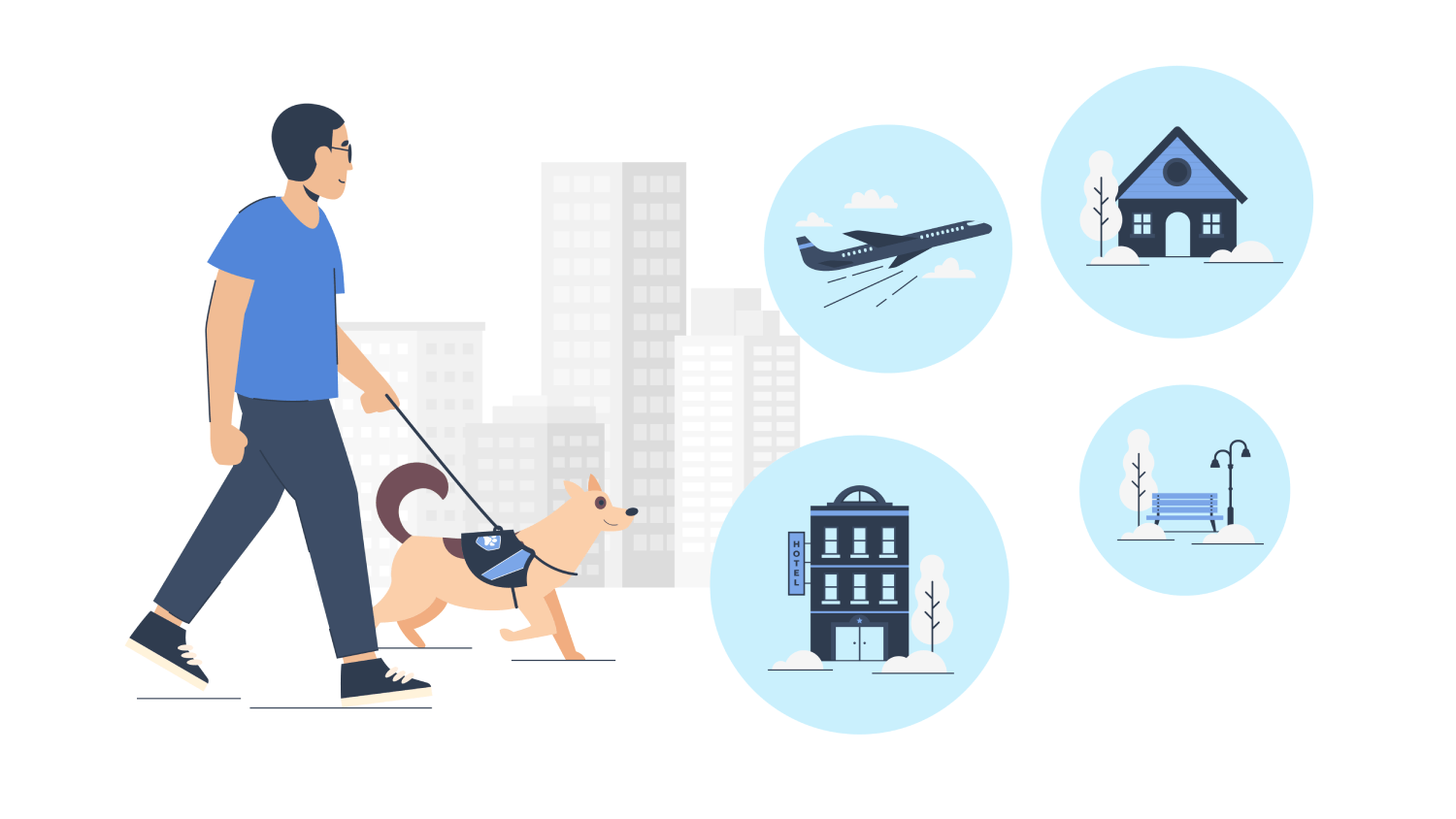It is not uncommon to ask the question, where is a service dog allowed to go? A simple answer, a service dog is allowed in all areas where the public is normally allowed, unless it poses a direct threat or safety concern. It is important to note that the handler is the one with the access rights, not the animal. Service animals are not permitted into a business or facility without their handler, and if a business can prove that a service animal poses a direct threat, they must still be able to accommodate the person with a disability without their service dog.
Restaurants
Service dogs are allowed to accompany their handler into the dining and patio areas of a restaurant but are not permitted in areas where food is prepared.
Airlines
Airlines must allow service dogs to board the plane with their handlers. It is the responsibility of the handler to ensure the safety of other passengers by keeping their service dog leashed or harnessed and ensuring they are well groomed. In addition, the handler is responsible for any damages caused by the service dog.
Housing
Service dogs must be permitted to live with their handler despite any pet policies and cannot be charged a pet deposit. In addition, service dogs should be allowed to accompany their owners in all areas of the residential complex, unless it will cause a financial burden or alters the services provided by the housing staff.
Education
Service dogs must be allowed in public schools educating kindergarten through 12th grade. Colleges and universities must permit service dogs to accompany their handlers in all areas open to the public or students. Colleges can require the student with the service dog to register with a disability services coordinator.
Employment
Reasonable accommodations must be made for an employee with disabilities. Service dogs should be allowed to accompany their handler if it assists them in performing their work. Employees must provide documentation stating their need and proof the animal has been trained to behave properly in social settings. Employers may deny accommodations if the request of a service animal poses a direct threat or will cause excessive financial hardship.
Hospitals
Service dogs must be allowed in all parts of the hospital or medical facility that the general public is normally permitted, with the exception of sterile rooms, some areas of the emergency room, ICUs, and some ambulances.
Transportation
Service animals must be allowed to accompany their handlers on public transportation such as buses and trains, unless the animal poses a safety concern. Private forms of transportation are subjected to similar requirements.
Although most businesses are able to accommodate an individual with a service dog, there are a few places that a service dog might be excluded. A few examples where this may apply are: private clubs, private homes, jail or prison, federal courts, Native American Tribal Council Chambers, churches and zoo exhibits. It is important to note that it is up to the discretion of the owner or business to make an exception and allow your service dog entry.


